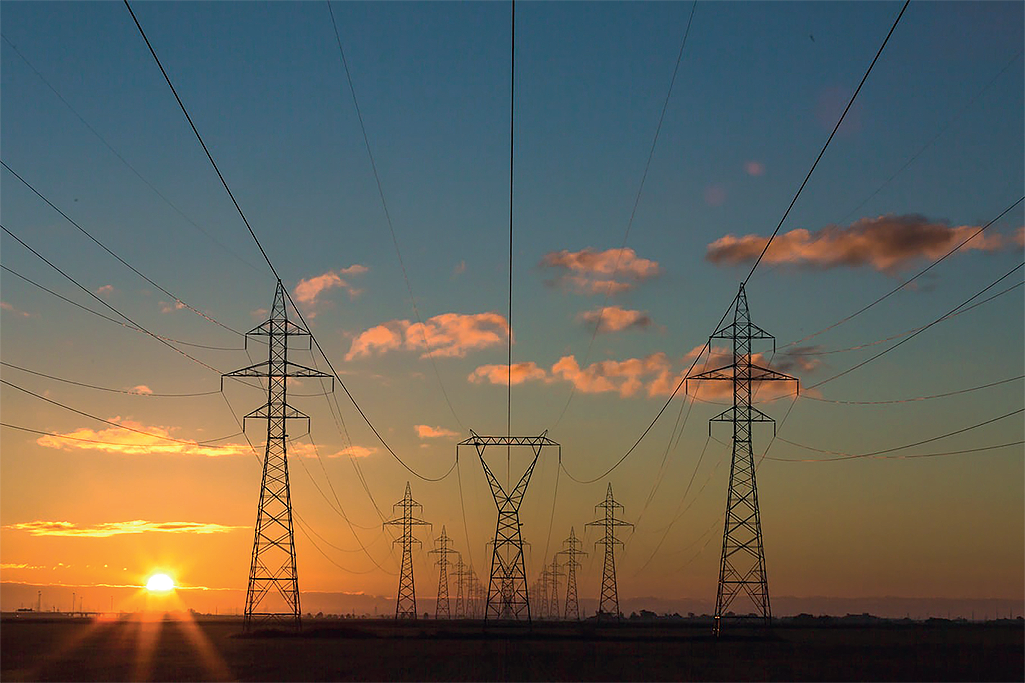
Time for change
Energy providers are facing a number of key challenges as the climate crisis becomes an increasingly higher priority for consumers. Customers are not only demanding more streamlined and convenient experiences from their energy providers, but are looking for ways to make their energy consumption more sustainable, whether this is by generating their own energy or choosing sustainable providers.
The ways in which people consume energy are also evolving, with the rising prominence of Renewable Energy Certificates and smart meters meaning that it’s possible for energy consumption to be smarter and greener than ever before. However, these developments don’t come without challenges of their own. From protecting a huge log of sensitive consumer data to tackling fraud, to the wider challenge of being able to prove the source of their renewable energy for regulators, energy providers have their work cut out for them. Energy providers are in search of new and innovative solutions to these problems, and this is where blockchain comes in.
According to Global Market Insights, the adoption of blockchain technology in the energy sector alone is set to generate over $3 billion by 2025, due to an increase in deployment of the technology in the power, oil and gas sectors. Lars Rensing, CEO and Co-found of enterprise blockchain provider Protokol, outlines five blockchain use cases for the energy, oil and gas sectors, illustrating why the energy industry needs to adopt blockchain now.
1. Creating a peer-to-peer energy marketplace
One hugely transformative effect blockchain can have is facilitating new peer-to-peer energy markets, or microgrids. By using blockchain to power energy trading, prosumers are able to sell any excess energy they have to other participants in their network. Blockchain facilitates this by creating an interlinked network of users, making transferring energy between households simple. Blockchain also allows users to trade their excess energy in automatically verified transactions using smart contracts, without the need for central authorities or third-parties to get involved. Microgrid installations are currently on the rise, with a record number of the grids installed in the USA in 2019.
The rise in popularity of these microgrids would at first glance seem to rival traditional energy companies. However, peer-to-peer energy trading can in fact reduce the costs of managing supply and demand for energy providers. Not only this, but it can reduce maintenance on the infrastructure delivering energy from generators to consumers’ homes, cutting costs for  providers and consumers alike. For consumers who produce their own energy, the ability to sell excess energy reduces waste, making the solution much eco-friendlier, as well as improving energy access, helping others in the network be more protected against power outages, and cutting costs. Indeed, companies have been trialling this solution in order to provide services to homes and businesses interested in managing more of their own energy supplies.
providers and consumers alike. For consumers who produce their own energy, the ability to sell excess energy reduces waste, making the solution much eco-friendlier, as well as improving energy access, helping others in the network be more protected against power outages, and cutting costs. Indeed, companies have been trialling this solution in order to provide services to homes and businesses interested in managing more of their own energy supplies.
2. Streamlining invoicing with real-time tracking
Billing issues can cause disastrous problems for oil and gas providers – just look at British Gas’s £9.5 million fine for inaccurate billing in 2017. Providers are looking for new solutions to streamline the invoicing process as much as possible, something blockchain can help with. Using a combination of blockchain, plant equipment, and sensors mounted onto pipelines, energy companies can track their outputs in real-time. Sensors can be used to monitor several points on the pipeline in order to execute accurate billing, based on blockchain-powered smart contracts. The blockchain then goes further, recording and tracking all data related to the smart contracts. Once the sensors confirm fulfilment of a contract’s terms, the system will execute billing and payment autonomously. This means customer invoice processing can be automated, creating a more accurate and secure process for everyone involved.
3. Putting a stop to Renewable Energy Certificate fraud
Consumers are certainly more environmentally minded for all their goods now, so proving that your energy is generated from renewable sources is becoming crucial for some energy companies. Renewable Energy Certificates (RECs) play a huge role here. These certificates allow prosumers to verify that the energy they are producing comes from renewable sources, while also allowing energy companies to confirm they are purchasing renewable energy from their prosumers. RECs are the currency of renewable energy markets; they allow people and organisations alike to choose cleaner sources of energy, and renewable energy suppliers to tap into new consumers who would have previously not had access to them. As RECs are bought and sold as commodities, though, it leaves them vulnerable to fraudulent activity.
Blockchain can help renewable energy providers to combat this. The technology solves the problem of the ‘double spending’ of renewable energy certificates, which in this situation would prevent companies from wrongfully issuing the certificates. It would also prevent prosumers from double spending their renewable energy credits. This means that energy providers are able to not only guarantee, but also demonstrate the sustainable origins of their energy for consumers, preventing fraudulent claims at renewability.
4. Direct access to smart meters
Current research predicts that the global smart meters market will grow 9.34 per cent between 2017 and 2022. Smart meters allow for more accurate readings of the energy consumers use by monitoring power usage at regular intervals throughout the day. This information is then sent back to utilities companies, although often through a number of intermediaries. As an alternative to this information passing through so many hands, blockchain allows the data to be stored on a distributed ledger, which can be accessed automatically by the energy provider. Removing the need for intermediaries here saves on costs and increases efficiency for providers, as well as helping them to provide a more customer-centric service through direct interaction with their users.
Personal data being collected in real-time is also a concern, as it leaves customers vulnerable to a violation of privacy. There are a number of critical access points, so accessing customer data would be easy in the case of a privacy breach where someone gains control over a smart meter connection, in order to conduct billing fraud. Blockchain can help secure this process and protect smart meters from cyber-attacks. Blockchain technology creates a decentralized, yet secure network foundation for smart meters, protecting them from single points of failure and attack.
5. Removing the middle-man from trade settlements
When it comes to trades between energy companies, these can often be extremely complex. Records of trades are often kept separately, meaning it’s possible for both parties to come out of trades with different numbers. At best this can create inefficiencies; at worst, it breeds hostility between trade partners.
In business arrangements such as these, it doesn’t make sense for one party to hold responsibility for tracking costs. Having a single, unchangeable source of truth for transactions can remove any potential issues. Blockchain technology allows energy and utilities providers to record and settle transactions automatically, creating a network of partners where no single party controls or owns the data. This removes the needs for intermediaries like brokers or clearing houses, making the process not only more efficient, but also cheaper due to a reduction in costs associated with trade matching.
PROTOKOL
Lars Rensing is CEO of enterprise blockchain services provider Protokol. Protokol is empowering global enterprises to solve real business challenges and future-proof their business through the power of custom blockchain solutions. All about simplicity, its streamlined approach makes integrating blockchain into your business easy. It combines the flexible and interoperable ARK Core blockchain platform with expert-led services, to translate complex blockchain technology into effective business outcome
For further information please visit: https://www.protokol.com/